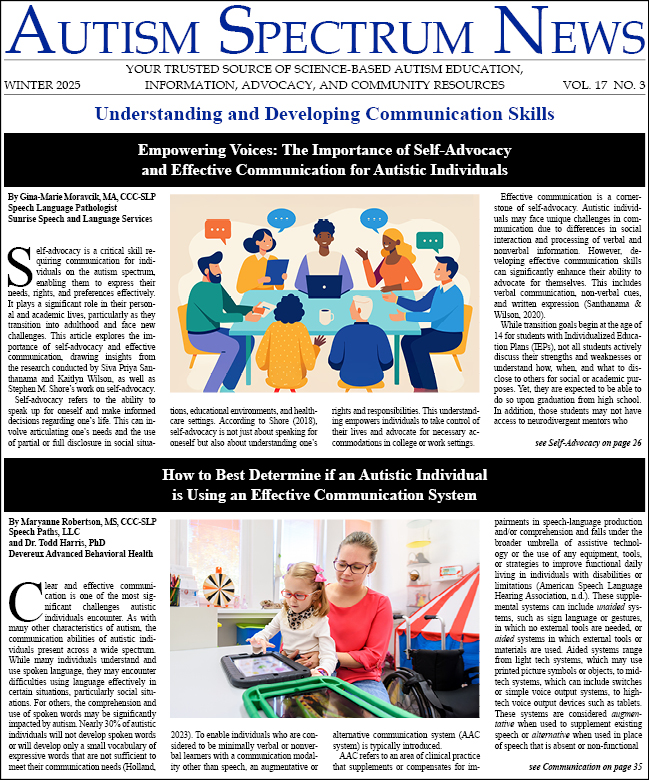-
Expanding Horizons: Tips for Life-Changing Inclusive International Travel
“Travel makes one modest. You see what a tiny place you occupy in the world.” - Gustave Flaubert Anyone who has traveled abroad knows the feelings of wonder and excitement that come with exploring new places. Experiencing other cultures, customs, landscapes, food, art, and architecture...
-
Supporting Autistic Individuals in Driver Education: A Systematic Approach
Learning to drive is a significant milestone, symbolizing greater independence and autonomy. Driving independently offers freedom, builds confidence, and encourages self-reliance, empowering individuals to make their own decisions (Cheak-Zamora, Tait, & Coleman, 2022). Additionally, independent...
-
The Case for Acceptance and Commitment Therapy for Sensory Processing in Autistic Young Adults
In my career as a clinical service provider for Autistic young adults, I have seen how understanding the senses can impact one’s emotions. It is so important to be aware of how Autistic people learn, communicate, and think with all of their senses. Recently, The DSM-5TR has included “sensory...
-
How to Create a Safe and Engaging Sensory Experience at the Pool
The pool is a great tool to use to cool down and engage individuals with autism spectrum disorder (ASD) over the summer. Not only can water exploration in the pool provide socialization opportunities in a natural environment, but water can meet essential sensory needs as it provides deep pressure...
-
Service Providers Need Enhanced Autism Education from the Autistic Community
When I was finally diagnosed in late 2000, public awareness about the autism spectrum, especially the milder variants such as Asperger Syndrome as it was then known, was at best minimal. In particular, the vast majority of mental health professionals (the service providers most likely to address...
-
Enhancing Dental Care for Individuals on the Autism Spectrum: Strategies and Collaboration
For individuals on the autism spectrum, navigating dental care can present significant challenges, often resulting in long waits and apprehension. In such instances, the partnership between dental practitioners and professionals who work with individuals on the autism spectrum becomes not only...
-
Expert Tips and Strategies for Navigating Potty Training Challenges for Autistic Children
The Centers for Disease Control and Prevention (CDC) estimates that about one in every 54 children in the U.S. has been identified as having autism spectrum disorder (ASD). Issues with sensory processing, eating, digestion, and incontinence are not uncommon symptoms for children with ASD to...
-
Empowering Eye Exams: Strategies for Supporting Autistic Patients
Eye exam. Two words that can cause a lot of anxiety in families of autistic patients. Questions may arise about how your child will tolerate the exam and what to do if they need glasses. If your child has communication limitations or sensory sensitivities, you might wonder if they’ll be able to...
-
Creating Sensory-Friendly Health Care Environments for Autistic Patients
Autism spectrum disorder (ASD) is a multifaceted neurodevelopmental condition characterized by challenges in social interaction, communication, and limited or repetitive behaviors. Individuals with ASD might also experience sensory sensitivities, such as heightened responses to lights, sounds,...
-
The Silent Roadblock: Understanding the Ripple Effects of Feeding Difficulties on the Spectrum
While it’s widely documented that autism spectrum disorder (ASD) affects social interaction, communication, and behavior, there is a less spotlighted, yet pivotal, piece to these neurodivergent children: feeding difficulties. It’s estimated that up to 80% of autistic children have some form of...




